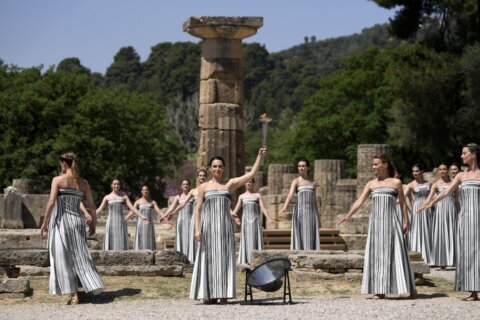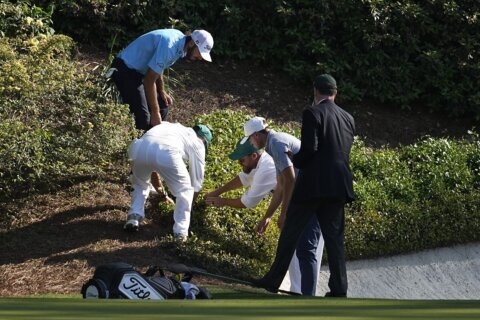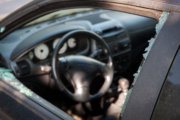BELGRADE, Serbia (AP) — Serbia’s new government was inaugurated after formally winning parliament’s approval Wednesday, some six months after an election that reaffirmed the domination of autocratic President Aleksandar Vucic and his right-wing populists.
The vote in the 250-seat assembly was 157 for and 68 against the new cabinet. The rest of the lawmakers were absent.
The new government, which will be led by Vucic’s close party associate Ana Brnabic for her third consecutive term as prime minister, will have to deal with strategic decisions facing the Balkan country. Those include Western calls for Serbia to join sanctions against its ally Russia over the war in Ukraine and normalize relations with the former Serbian province of Kosovo — if it wants to join the European Union.
The new cabinet has 28 ministers, including some staunchly pro-Russian like Foreign Minister Ivica Dacic. It also has officials who are considered pro-Western, but they will run less prominent ministries that will have little say on Serbia’s future foreign policy decisions.
Vucic, who leads the ruling SNS party and who wields almost full influence over government policies, has said he has “limitless trust” in Brnabic, 47, who became Serbia’s first female — and openly gay — premier in 2017.
In her inaugural speech in Parliament, Brnabic tried to downplay claims that the new government is either pro-Russian or pro-Western.
“We are building a European Serbia and (EU) membership itself certainly does not depend only on us,” she said. “Serbia will also continue to invest in its friendships with other countries,” she added, in an apparent reference to Russia and China.
Although its largest portion of foreign trade is with EU-member states, Serbia is almost entirely dependent on Russian gas and has bought weapons from Russia, while China is a major investor.
A former anti-Western ultranationalist, Vucic has said he wants to lead Serbia into the EU. But he has refused to join Western sanctions against Russia and maintains friendly ties with Moscow despite the war in Ukraine. Aligning foreign policies with those of the EU remains one of the main pre-conditions for Serbia to join the 27-nation bloc.
Political analyst Milan St. Protic said Vucic and the governments he has hand-picked during his 10-year rule have allowed the expansion of Russian influence in the country.
“It is clear that Serbia has found itself in the Russian jaws,” Protic said. “When that door was opened, they (the Russians) came in from all sides.”
Vucic won another five-year mandate in the April vote, which was both a parliamentary and a presidential election.
Analysts have said Vucic wanted to delay the formation of a new government as long as possible to put off making big decisions that could hurt his standing among his predominantly pro-Russian electorate.
Russia wields strong political influence in Serbia, which is considered Moscow’s strongest ally in Europe. There are fears in the West that Moscow has been using Belgrade to destabilize neighbors in the Balkans, which are still reeling from devastating wars in the 1990s.
Copyright © 2024 The Associated Press. All rights reserved. This material may not be published, broadcast, written or redistributed.







